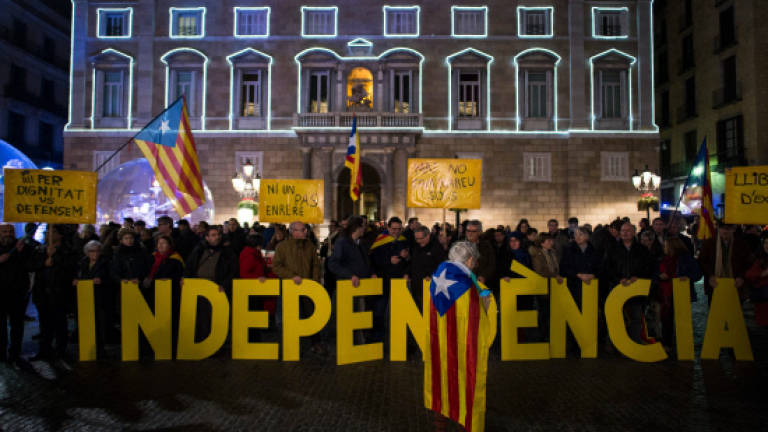What next in the Catalan crisis?

MADRID: Separatists in Catalonia want to declare independence, Spain's central government wants to stop them at all costs.
So what happens next? Will the Spanish region descend into a spiral of unrest? Or will Catalan leaders hold regional elections with the hope more supporters will have rallied to their cause?
Here are possible scenarios:
Suspending autonomy
Even if Catalonia is deeply divided over independence, the separatists in power want to declare independence based on a referendum on Oct 1 that went ahead despite a court ban.
They say the results make such a declaration legitimate: 90% voted to split from Spain, although just 43% turned out.
Prime Minister Mariano Rajoy's conservative government, meanwhile, is moving towards seizing some of the Catalan regional government's powers to try and stop the crisis.
This measure could be taken end of October, when the upper house Senate gets the chance to approve it.
Madrid has already taken control of Catalonia's finances, and the region will run out of its own funds within weeks.
The government could also take over Catalonia's Mossos d'Esquadra police force and replace its leaders.
It would present this is as a way to restore "democracy", while promising to hold regional elections.
But the Catalan government would then likely launch a unilateral declaration of independence, though who would recognise it remains to be seen.
Regional leaders could be jailed, which would risk turning them into martyrs for their supporters.
Elections
On Wednesday, government sources in Madrid said that if Catalan leader Carles Puigdemont calls regional elections, Spain could halt its moves towards suspending the region's autonomy.
But Puigdemont is caught between a rock and a hard place. In his diverse separatist coalition, which ranges from far-left to conservative parties, some would like him to back down, others to push ahead with independence.
With official elections, Catalans could express their point of view.
In the separatist camp, that option is not on the table as of yet.
And one separatist official, who refused to be named, told AFP that in that scenario, "if we win with even one vote above 50%, we're leaving."
Street protests
Spain has already experienced 40 years of sometimes violent unrest in its northern, 2.2-million-strong Basque Country, waged by separatist terror group ETA.
Now that things have quietened down on that front, will unrest hit Catalonia?
So far the protests have been peaceful, and the Spanish government hopes that Catalans will grow weary of the economic crisis sparked by the current instability.
But the Catalan government has a large support-base.
During the referendum, thousands of people defied the state and hid ballot boxes before the illegal vote, or resisted peacefully in front of polling stations as police tried to stop them from voting.
Many have protested "against occupation forces," which is what they call national police deployed to Catalonia to prevent the referendum.
These activists are ready to take to the streets, be they from wealthy backgrounds or not, students, farmers, civil servants, mayors, firefighters, dockers or union members.
The most determined among them could seek to paralyse the region by blocking key infrastructure such as train and routes.
External pressure
Neither Rajoy nor Puigdemont can ignore pressure from abroad as European leaders, investors, banks and ratings agencies express their concerns.
An information war is being waged, with separatists saying they represent "democracy against the repression of Madrid" which retorts there is no repression. — AFP